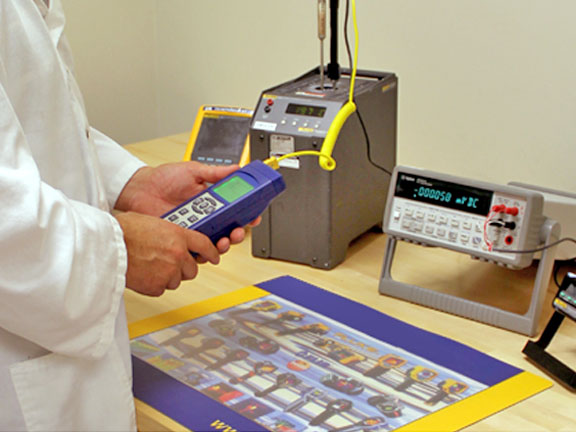The Vital Importance of Instrument Calibration in Healthcare Facilities
Healthcare facilities depend on the precision and accuracy of their instruments to deliver quality care and accurate diagnoses. Instrument calibration plays a crucial role in ensuring that medical devices and equipment provide reliable measurements and results. Let's delve into why instrument calibration is indispensable for the smooth and effective functioning of healthcare facilities.
Accurate Diagnoses and Treatment
Proper calibration of medical instruments is essential for accurate diagnoses and treatment. From blood pressure monitors to laboratory analysers, the reliability of measurements directly influences the medical decisions made by healthcare professionals. Calibrated instruments ensure that patients receive accurate diagnoses and appropriate treatment, which is critical for their well-being.
Patient Safety and Care Quality
Calibrated instruments contribute to patient safety and the overall quality of care within healthcare facilities. Whether it's administering medication, monitoring vital signs, or conducting diagnostic tests, properly calibrated instruments help prevent errors and ensure that patients receive the precise care they need. This is vital in upholding the highest standards of patient safety and care efficacy.

Compliance with Regulatory Standards
Healthcare facilities are subject to strict regulatory standards governing the accuracy and reliability of medical equipment. Instrument calibration is essential for maintaining compliance with these standards, ensuring that healthcare facilities meet the necessary quality and safety requirements. By adhering to calibration protocols, healthcare facilities demonstrate their commitment to patient well-being and regulatory compliance.
Prevention of Infections and Contamination
Instruments such as sterilisation equipment, autoclaves, and disinfection devices play a critical role in preventing infections and contamination in healthcare settings. Calibration of these instruments is necessary to ensure that they operate effectively, maintaining the highest standards of hygiene and infection control, ultimately safeguarding the health of patients and healthcare personnel.
Efficient Workflow and Resource Utilisation
Calibrated instruments support efficient workflow and resource utilisation within healthcare facilities. Whether it's efficient utilisation of medical gases, accurate dispensing of medications, or precise surgical instruments, calibration ensures that resources are deployed effectively, minimising wastage and optimising operational efficiency.
Enhanced Confidence in Test Results
Laboratory instruments used for diagnostic testing, such as blood analysers and imaging equipment, rely on precise measurements. Proper instrument calibration is essential for producing reliable and accurate test results, instilling confidence in the diagnostic capabilities of healthcare facilities. This, in turn, fosters trust among patients and healthcare professionals.
Extended Equipment Longevity
Calibration not only ensures accurate measurements but also contributes to the longevity of medical equipment. Properly calibrated instruments are less prone to malfunctions and premature wear and tear, thereby extending their lifespan and reducing the need for frequent replacements or repairs, ultimately minimising operational disruptions.
Conclusion
In healthcare facilities, instrument calibration is not just a regulatory requirement but a fundamental necessity for ensuring patient safety, accurate diagnoses, and high-quality care. From diagnostic equipment to surgical instruments, the reliability and accuracy of measurements directly impact the well-being of patients and the efficacy of healthcare services. By recognising the critical importance of instrument calibration, healthcare facilities uphold the highest standards of precision and reliability, ultimately contributing to the delivery of exceptional patient care.
December 1st, 2023